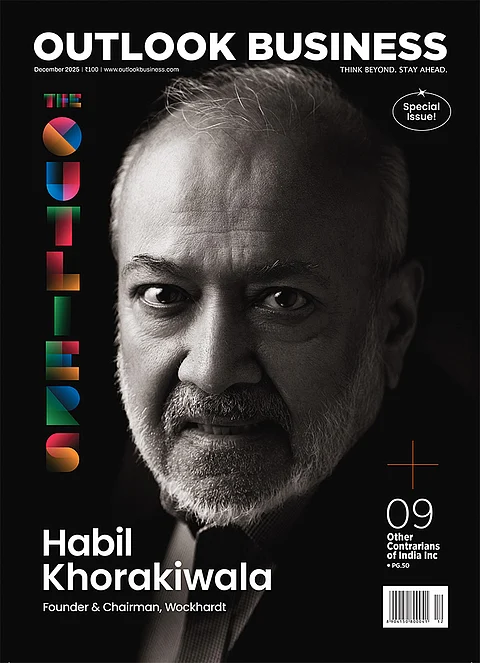Reinvention isn’t a turnaround. Those nasty things — like what’s going on right now at HP — are generally accompanied by massive layoffs, factory closings and slashed product offerings; and what’s left seldom resembles its former self. It also isn’t about moving your business from point A to point B and being done with it. Reinvention means embracing constant, radical change in order to stay ahead. By reinventing, you can fulfil your workers’ need for financial reward and a challenging career; you can meet your customers’ ever-changing needs and desires; and you can compensate shareholders for the risk they took in betting on your firm. It’s a non-stop and continuous process and if you tire of doing it, perhaps you shouldn't be in business at all.
But it’s not easy for companies to embrace change. Take a look at these top reinvention killers to understand why:
Not making growth a guiding principle of the company
Almost every company procliams it has a list of guiding principles. Generally, these lists aren’t worth the time spent crafting them, the paper on which they’re printed or the digital space they occupy, because nobody knows them and they aren’t used for actual decision making.
The biggest challenge facing any business is finding, keeping and growing the right people. The best way to find and keep great people is by growing constantly. That way people will always have new challenges and find ways to better themselves financially. Successful reinventors make the achievement of a double-digit improvement in financial performance every year a true guiding principle for their companies.
Not letting go
One of biggest reinvention killers is refusing to let go of yesterday’s breadwinners, ego, same-old-same-old and conventional wisdom. RIM and Yahoo! are two perfect examples of companies that couldn’t let go of legacy products, where the boss had to be the smartest person in the room, and where nothing received attention until it was obviously broken. Unfortunately, the immutable law of suckage applies to companies that can’t let go. By the time you’ve figured out you suck, you’ve sucked for a very long time.
Not having a clear destination
When the leader of an organisation fails to provide a crystal clear picture of where the organisation is headed and what it aims to be, and does not get everyone on board for the journey, any reinvention effort is certain to fail. People want to know the destination; they want to know their role in getting there; and they want to be acknowledged for their contributions.
There’s only one valid reason why a leader would fail to communicate the destination and the journey and that’s because they don’t have a clue themselves. That’s a dangerous leader to have around. When a company’s destination has a strong sense of purpose, the chances of reaching it are greater. Who wouldn’t want to play in the sandbox at Google (organising all the information in the world), at Apple (changing the world, period) or at Facebook (connecting the planet)?
Not making lots of small bets
When Howard Schultz retook the reins at Starbucks, he took 10,000 workers to New Orleans to build homes for victims of Hurricane Katrina. He told the assembled group that Starbucks wasn’t as much about coffee as it was about them and their futures, and that the only way to have a bright future was to grow.
In the next 18 months, the company made a dizzying 150 small bets including new store design, the testing of wine and beer sales, a new logo, mobile payments, a dessert line called Starbuck’s Petites, Via instant coffee in supermarkets, and even oatmeal. Schultz’s small bets paid off. The incremental revenue generated brought Starbucks’ revenues back to where they’d been before the slide (allowing organic growth to kick in); the shares more than doubled in value; and Schultz was named Fortune’s CEO of the year.
Being willing to make lots of small bets, scaling those that work and leaving behind those that don’t (without anyone being punished in the process) is the mark of a successful serial reinventor.
Not practising jugaad
Believing that reinvention requires lots of cash is a killer. Embracing radical change requires more of a spirited mindset than deep pocket financial resources. Jugaad is a Hindi word that describes the ability of people living in rural India to take an ox cart, a steering wheel from an abandoned school bus, an engine off a scooter and somehow create a people-moving transport vehicle. It’s a spirit that says, “Let’s start by using what we have to get the job done.”
Mike Long, the CEO of Arrow Electronics, who has built the company into a $22-billion powerhouse, puts it this way. Instead of starting the process of reinvention by asking how much money you’re going to throw at something, start by asking, ‘What’s troubling our customers?’ Then, figure
out how to solve that problem and make life easier for your customers. Often, you’ll be able to get it done with existing resources.
Thirty-five years ago an upstart new airline with four planes was running out of money. Although it wanted to sell one plane to solve its immediate cash problem, it didn’t want to give up any of the cities it was serving or lay people off. The airline started wondering what would happen if it could reduce the on-ground turnaround time from 25 to 10 minutes. While doing the math, they realised, if they could turn an airplane in 10 minutes, they could sell one plane and still add more flights. They sold everyone on the idea and made it work and that airline — you know it as Southwest — became the biggest airline in the US. Just imagine what might have happened if they had deep pockets or a bunch of venture capitalists who would have been willing to ante up more dough. They might never have landed on the reinvention that, ultimately, became their competitive advantage.
Not being fast enough
People who can’t think fast, decide fast, get to market fast and maintain momentum can’t be reinventors. “If it’s worth doing, it’s worth doing NOW,” is the mantra of successful reinventors. Nothing is going to happen until somebody makes it happen and there is a need for urgency. In order to be successful reinventors, companies must weed out those without a need for speed. Slow, plodding, careful and risk averse are words that applied in yesteryears. Reinventors have no time to rest.











